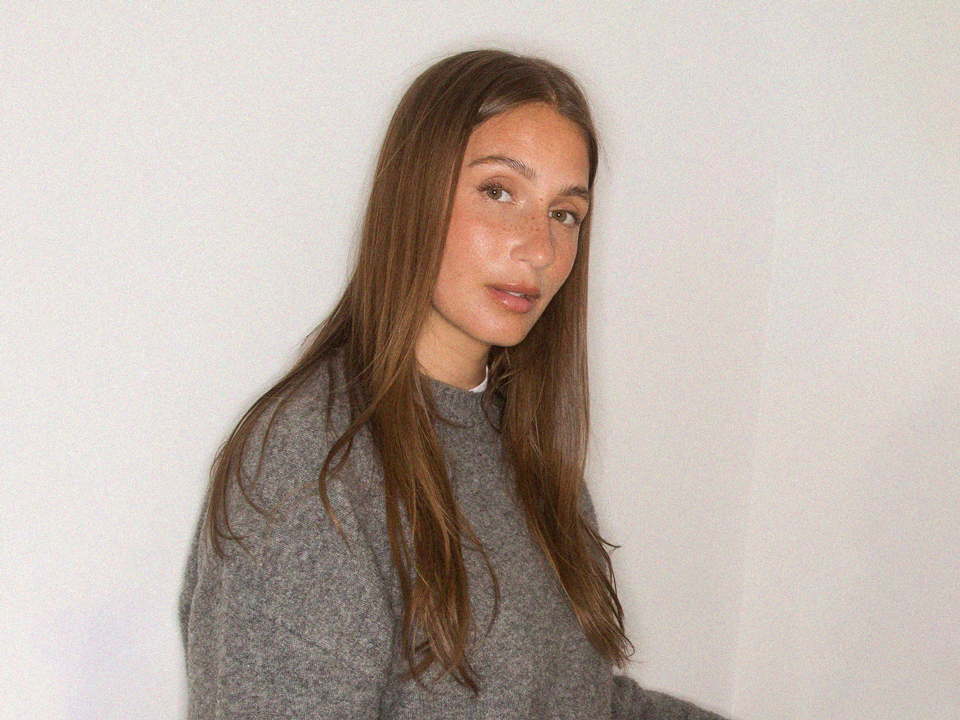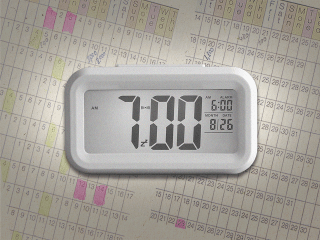Amanda Batula Says Antidepressants Changed Her Life
"I feel so much more like myself again. I really lost myself for a few years there."
If you’re a fan of Bravo’s Summer House, you’ve probably noticed a shift in Amanda Batula recently. On-screen she’s joking around more, and she’s willing to get dressed up and go out on the weekends.
And off screen, Batula is staying booked and busy with her recently launched swimwear line, solo press interviews, and collaborations with brands like Face Reality Skincare—things we haven’t seen from her in the past.
It’s a far cry from the version of Batula we watched a few seasons ago, and she says the change is mostly thanks to her antidepressant. “It's just completely changed my life. I'm able to wake up in the morning and I feel so much more like myself again. I really lost myself for a few years there.”
Here, Batula opens up about dealing with depression, the process of trying to find the right mental health medication, and how she takes care of her mental health while filming Summer House.
WM: Were you nervous to open up about your mental health struggles on Summer House? What made you decide to talk about it publicly, and what has the response been like?
AB: I wasn't nervous at all. I feel like on the show over the last nine years, I've literally shown every aspect of my life: the good, the bad, and the ugly. I've been very transparent and open, and this is just another part of who I am.
I actually was excited to talk about it, honestly, because it felt like a sense of relief. I felt so lost for so long, and once I finally figured out that I was struggling and there was something that I could do to help myself feel better, I was excited to share and tell everyone, "Hey, this is what's going on with me." I was not proud to be depressed, but proud that I was able to share something and hopefully help other people.
So there was no nervousness about talking about it, and the response was insane. After that first reunion when I shared that I was struggling and on medication, the amount of messages I got—and still get to this day—from people who thanked me for being open about it was amazing.
People have said that me talking about how I was feeling encouraged them to make appointments with their doctors, which is so meaningful and heartwarming. It just makes me want to continue to share and be open.
Maybe I'm not out here saving lives, I'm not a doctor, but I am helping people in some way. And if that's the most that I can do, then that means everything to me. So I will continue being super vulnerable and open about everything that I'm dealing with.
WM: I know you’ve said that, in hindsight, you felt like your depression started as post-wedding blues and got worse from there. Can you talk about how it evolved and how long you were struggling before you realized you needed to seek help?
AB: I think it was about two and a half years that I was really struggling. In the buildup to the wedding there's so much excitement, so much anxiety, so much stress. You're constantly on calls, emails, planning things, trying on your dress, just all this incredible stuff. The wedding day is so amazing. And then once it's over, nothing happens.
Afterwards I was getting DMs from people asking me, "Oh, are you dealing with the post-wedding blues?" I'd never heard of that before. And I realized, Wait, I *am* just kind of sad and just chilling on my couch and not really doing much. So I never snapped out of that.
Then it was winter, so I thought, OK fine, seasonal saddies. It's just because it's winter. I kept making excuses almost, like, Oh, it's just the post-wedding blues. Oh, it's just seasonal saddies. Oh, I'm just not feeling myself. Oh, it's just my hormones. Oh, it's just this. So that was two and a half years of, Oh, if I take care of this, it'll fix it.
And then it was Thanksgiving, and I always go home for Thanksgiving holidays. My parents kept asking when I was coming home, and a day or two before Thanksgiving I was like, “I don’t think I’m going to make it. It’s too much.” The idea of packing and everything was overwhelming me. And that’s when it really hit that I needed help, because this is so out of my character to just not go home. I love being at my parents’ house.
A lot of people in my close circle of friends and family realized something was going on. I was shutting down. I wasn’t communicating with people. I wasn’t going to any events or anything. So people would check in, but no one really knows what to say. My parents were the ones that were like, "You've got to do something about this." So that's when it really clicked for me that something more was going on.
WM: Earlier this season on Summer House, you mentioned you’ve been experimenting with different mental health medications and trying to find the right fit. Can you talk about what that process has been like, and where you are in your medication journey right now?
AB: I was taking one medication that made me feel a lot better at first. But then I started feeling so much anxiety that it was almost debilitating. I was feeling happier, but my anxiety was so bad that I couldn't do anything. My psychiatrist told me that could be a side effect of that medication, so he put me on a different one. And I was taking only that for a few months. I also take ADHD medication, but I stopped taking everything else and was just focused on my antidepressant to see how that affected me.
Once we found the right medication and dosage, we added in some other things to really help balance myself out. I’m still working on the exact right combination and dosage, but I'm feeling so much better than I was after that first medication. I felt so good after that first medication, and the way I feel now, almost a year later, is ten times better than that.
It's a long game, but it's so worth it to find the right combination and the right medication for you. But it can be a frustrating process.
WM: What are the biggest differences you’ve seen in yourself since starting antidepressants?
AB: I text people back. I'm just happier. Doing interviews like this, I would've shot down every opportunity to talk to anyone about anything when I was depressed. I felt so lost and alone, and like I wasn’t good enough for anything. I was like, Why would someone want to talk to me?
I just feel the energy and the desire to do things, even if it's going to be embarrassing or not work out—that doesn't cross my mind anymore. I was in a really dark place and now I'm making appointments, getting my hair cut, going to the nail salon, getting out of my apartment, doing things, making plans, meeting friends for dinner at the last minute. It’s just completely changed my life. I feel so much more like myself again. I really lost myself for a few years there.
WM: Switching gears a bit, you’ve been open about struggling with acne since you went off of birth control. How does dealing with breakouts in the public eye affect your mental health, and what are you doing to cope?
AB: I've gone through so many things on reality TV, but I think that filming while breaking out was probably the most insecure and hardest time I've had. I'm sure so many people can relate to having one pimple on their face, and they feel like that's the only thing everyone in the room is staring at. And I felt like that all the time.
It was happening at a time where I was dealing with depression too. So that was also probably a part of why I locked myself indoors and turned so many things down; I didn't want people to see me. I was dealing with weight loss and fluctuation also, and there were so many negative comments about that. And then my skin on top of it, it was just so much.
Paige had worked with Face Reality Skincare and she influences me all the time. When the opportunity came up to work with them I was like, “Yes, I want to do it,” and it really helped clear up my skin. We're just getting started, but I'm really excited with the results I've seen from my Face Reality regimen so far. My breakouts are so much more surface level now, and they're going away faster. So I'm really excited and hopeful for what's to come.
You shouldn’t be embarrassed of your breakouts. The internet is so wild these days, with filtering and this idea of perfection that it literally made me become a hermit. It made me shut down and not want to go out. And that should not have happened. That's another reason why I want to talk about it—my mental health and my breakouts—because we're all dealing with it.
WM: You’ve also mentioned that you deal with anxiety and feelings of overwhelm sometimes. What’s it like trying to take care of your mental health while filming? Are there any self-care strategies that you use in the house?
AB: Yeah, it’s been a learning process. I know Ciara and Paige deal with the same sort of feelings, which is probably why we find ourselves in bed and on our phones all the time. I think we need that mental break, and we need to almost dissociate. We need to leave the situation that we're in mentally and just distract ourselves with silly TikToks or whatever's on social media.
That's one way that we've been able to calm ourselves down while filming, and that's why you do see us all in bed a lot, because it's like, "OK, I need a break from all these people and all this drama." Even if everyone's having fun, sometimes the energy is so much that I'm like, "OK, I'm not here right now. I need to go lay in bed or take a really long shower."
And then when I come home, Mondays are my Sundays. I'm like, "Don't talk to me. Don't text me, don't email me. Pretend I don't exist because I'm doing nothing all day." I put the dogs on my chest and I just have a day to collect myself. I allow myself that grace day to just feel all my feelings, regroup, and then go into Tuesday strong.
WM: If you could give readers who are dealing with depression one piece of advice, what would it be?
AB: I think there's two things that go hand in hand. The first thing would be to talk to someone—anyone. It could be your parents, a sibling, a best friend, or it could be a teacher or a co-worker. For me, it was easier to open up to people I wasn't as close with at first.
When you say it out loud and you admit it, that feels like the first step to getting better. At least it did for me. And then those people can help hold you accountable and check in on you. If no one knows that you're struggling, no one's going to know to check in and help you out.
And then the second thing is to be patient. Finding the right medication and letting the medication actually do its job, it's going to take time. It's not something that happens overnight. It feels like it'll take forever, but you have to be patient and it will pay off. There's no quick fix, there's nothing that's going to happen instantaneously. You just have to keep working at it and it will pay off, and you will end up feeling so much better.
Wondermind does not provide medical advice, diagnosis, or treatment. Any information published on this website or by this brand is not intended as a replacement for medical advice. Always consult a qualified health or mental health professional with any questions or concerns about your mental health.




